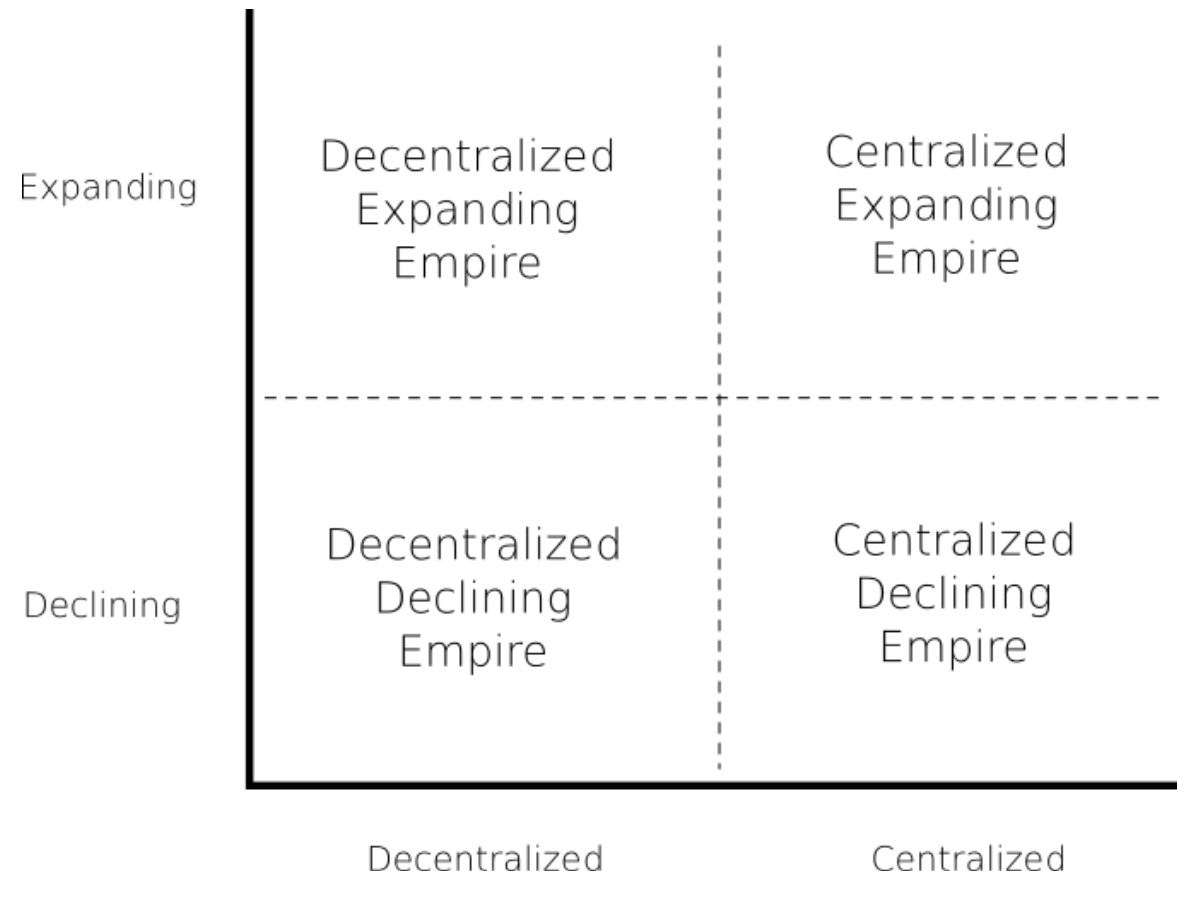
Competition for power unfolds over a strategic landscape.
As I explained in Empire Theory Part I, we can split this landscape into three power classes: high, mid, and low. In Part II, I illustrate how these classes vie for power:
samoburja.com/empire-theory-…
1/n
As I explained in Empire Theory Part I, we can split this landscape into three power classes: high, mid, and low. In Part II, I illustrate how these classes vie for power:
samoburja.com/empire-theory-…
1/n
Even those aligned on overall ends may choose to compete over power.
But with competition comes coordination; the dance between the two defines the landscape. Even unaligned actors may be induced to coordinate against others.
2/n
But with competition comes coordination; the dance between the two defines the landscape. Even unaligned actors may be induced to coordinate against others.
2/n
I go into detail about each interaction in the piece, but the tense interaction between mid and high is the most important part of the analysis.
The main variable is resources. High must incentivize mid not to raid the resources concentrated at the top.
3/n
The main variable is resources. High must incentivize mid not to raid the resources concentrated at the top.
3/n
Resources change over time. In order to maintain control, high must continuously introduce new resources into its empire. Growth leads to imperial health, and scarcity to decay.
Growth and decay play out differently depending onthe degree of centralization:
4/n
Growth and decay play out differently depending onthe degree of centralization:
4/n

An empire might be centralized or decentralized depends on if high can buy off and coordinate mid with resources, or is too weak to control mid’s own expansion. Each type of empire also contracts differently.
Read the piece for details as well as historical examples!
5/n
Read the piece for details as well as historical examples!
5/n
These types of empires then have interesting consequences for bureaucracies as well as coordination among live players. To see how they fit the bigger picture, read Great Founder Theory.
6/n
https://twitter.com/SamoBurja/status/1322225349766324225
6/n
• • •
Missing some Tweet in this thread? You can try to
force a refresh


